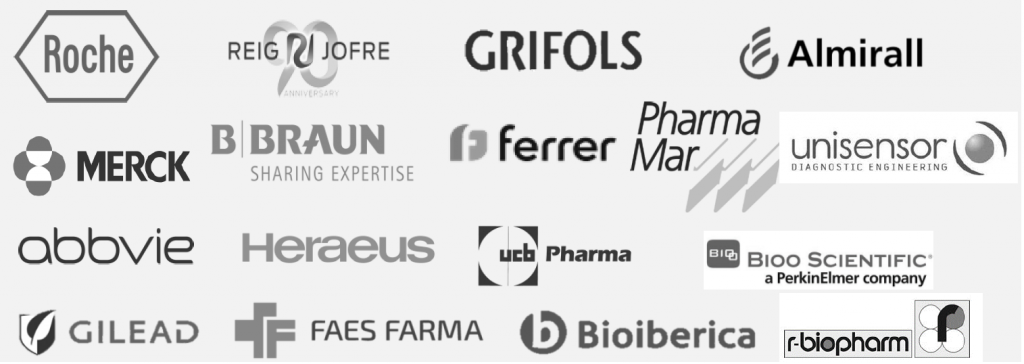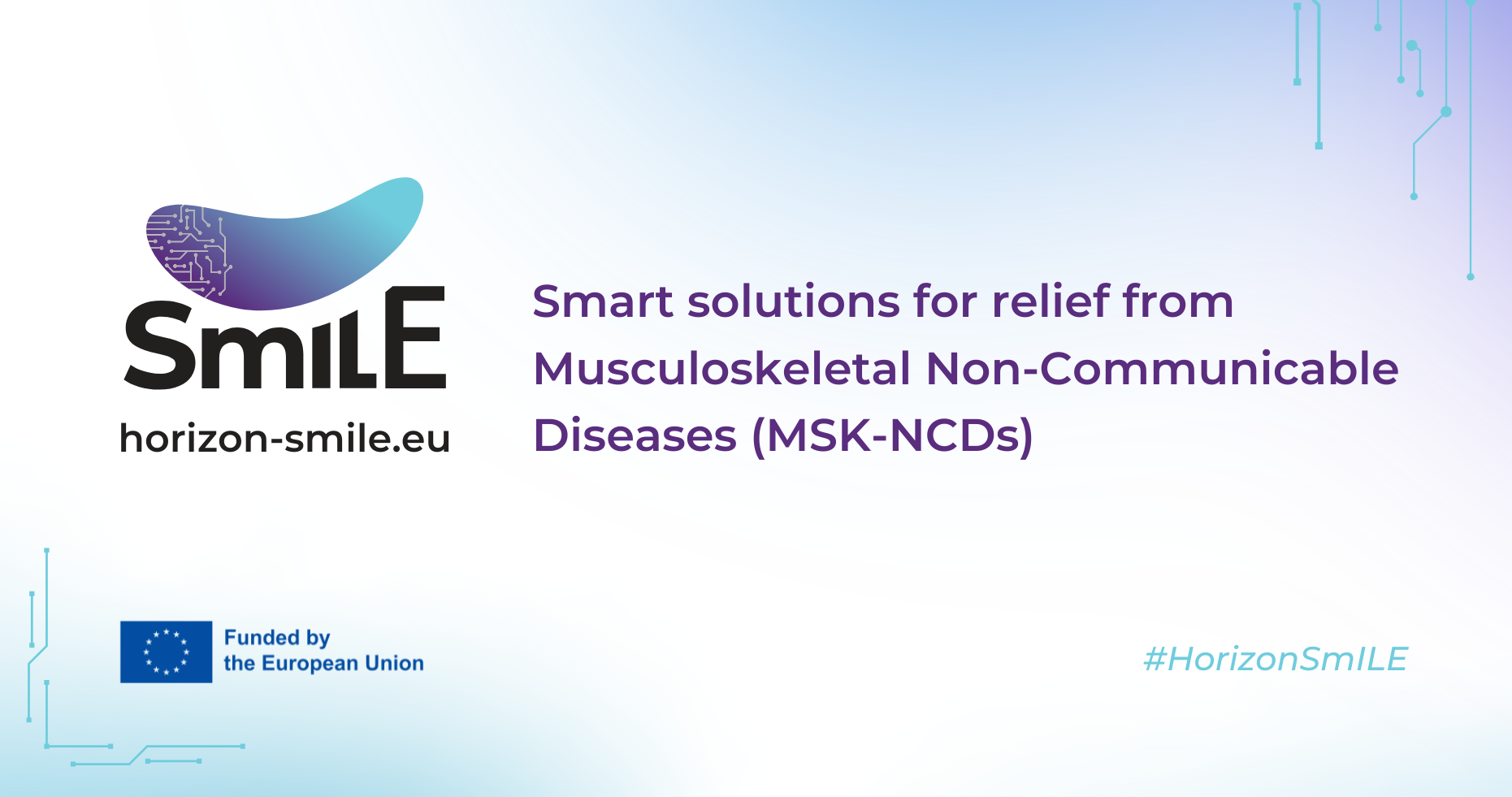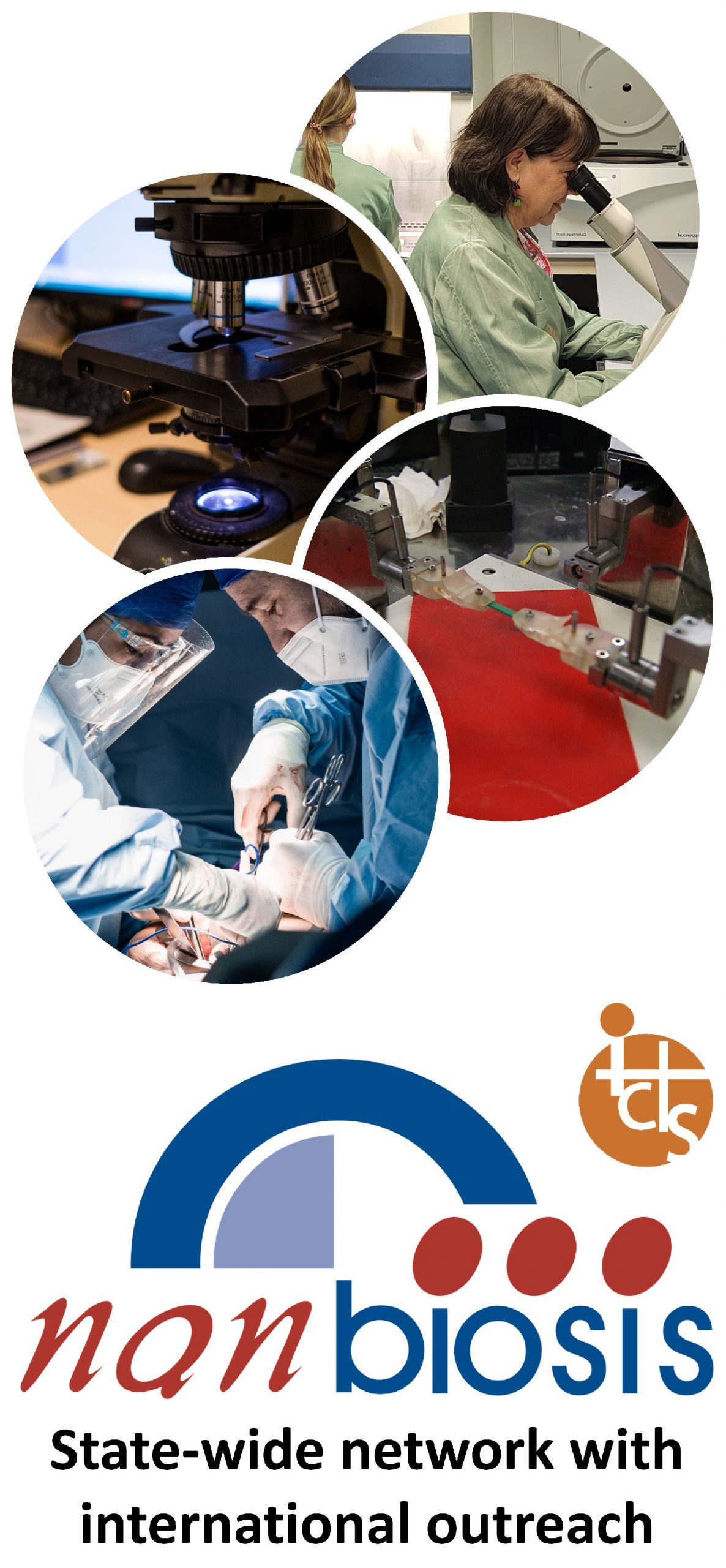New European Project “SmILE” Aims to Revolutionize Musculoskeletal Disease Management
SmILE develops smart implants and digital health solutions to prevent and manage musculoskeletal diseases, enhancing patient care and independence.
Lübeck, February 2025. The European project “SmILE” has been launched to provide innovative solutions for reducing the burden of musculoskeletal non-communicable diseases (MSK-NCDs) among the elderly through preventive measures and early interventions. Supported by the Horizon Europe programme and the Swiss State Secretariat for Education, Research and Innovation (SERI), this collaborative initiative brings together 25 institutions from 12 European countries with a budget of €19.9 million, plus an additional €760K from SERI, over five years.
Addressing the Challenges of MSK-NCDs
With an ageing population, the prevalence of MSK-NCDs such as osteoarthritis, osteoporosis, and rheumatoid arthritis has significantly increased. These conditions often result in chronic pain, reduced mobility, and a lower quality of life. “These diseases impact bones, joints, muscles, and connective tissues, leading to chronic pain and reduced mobility,” states project coordinator Arndt-Peter Schulz.
The SmILE project aims to tackle these challenges by integrating smart implants with digital health solutions to enable continuous monitoring and tailored recommendations.
A Smart Solution for Better Healthcare
At the core of the SmILE project is the development of a universal chip platform designed to transform medical devices into active data generators. This allows for real-time data collection, enabling quicker and more precise diagnoses while facilitating advanced treatment strategies.
The collected data will be processed through an integrated patient-centred health platform tailored to the needs of elderly users. This digital ecosystem will empower patients with a comprehensive overview of their health status, personalized recommendations, and active condition monitoring.
Additionally, an AI-driven data system will integrate patient information with real-time inputs from implants, wearables, and health questionnaires. This robust data ecosystem provides valuable insights for both patients and healthcare providers, ultimately improving disease prevention and management.
NANBIOSIS’ Contribution to SmILE
NANBIOSIS plays a crucial role in the development and implementation of the SmILE project, contributing its expertise in hardware design, sensor integration, and validation processes:
- Ramón Martínez (Director of NANBIOSIS and Scientific Director of Unit 26): Responsible for hardware design, sensor and system integration. His work includes sensor micro-housing, mechanical affixing, electronic adaptation for communication and energy transfer on metal bases, biocompatible overcoating, and risk assessment related to surgical handling and long-term performance. Additionally, he leads the development of embedded software ensuring high fidelity and data security for the sensor-electronics module.
- CCMIJU Units (integrating Units 14, 19, 21, 22, 23 and 24): Responsible for the production of different demonstrators and the testing and validation of SmILE in six different use cases. Their work ensures that the developed solutions meet real-world requirements, enhancing their effectiveness and applicability.
A Collaborative European Effort
Building upon the success of previous EU-funded initiatives, SmILE aims to establish flexible and autonomous data ecosystems tailored to individual patient needs. By leveraging digital tools, the project enhances autonomy and independence for older adults, reducing preventable complications and alleviating pressure on healthcare systems.
With its commitment to innovation and collaboration, NANBIOSIS is at the forefront of developing groundbreaking biomedical solutions that will shape the future of MSK-NCD management.
For more information, visit the SmILE project website: www.horizon-smile.eu
What is NANBIOSIS?
The goal of NANBIOSIS is to provide comprehensive and integrated advanced solutions for companies and research institutions in biomedical applications. All of this is done through a single-entry point, involving the design and production of biomaterials, nanomaterials, and their nanoconjugates. This includes their characterization from physical-chemical, functional, toxicological, and biological perspectives (preclinical validation).
In order to access our Cutting-Edge Biomedical Solutions with priority access, enter our Competitive Call here.
NANBIOSIS has worked with pharmaceutical companies of all sizes in the areas of drug delivery, biomaterials and regenerative medicine. Here are a few of them:











